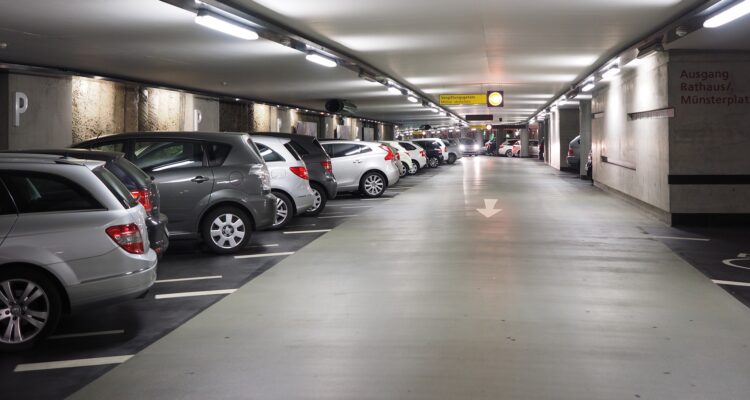Peter O’Driscoll, Managing Director at RinGo, a leading company in cashless parking solutions, reviews developments and issues that have faced fleet and transport professionals over the past year, and considers further changes in 2024.
2023 has seen ongoing economic, political and social volatility, which has had inevitable impacts for British transport and the fleet industry.
Looking ahead to 2024, I’m sharing my view on the upcoming fleet trends, alongside my predictions for how technology will change it for the better.
To me it is clear, greater investment in connected infrastructure and digitalisation will prove vital to decarbonising fleets and bringing on the future of mobility.
- Tackling ‘autobesity’ on UK roads
With a third of fleet managers expecting to grow their operations, there will be rising consideration over vehicle size which affects both the environment and parking alike; now more than 150 car models, and counting, are too big for regular UK parking spaces and are expelling more carbon emissions.
Already, the SUV market already accounts for almost half (46%) of global car sales, and cars in the UK are increasingly exceeding road sizing and parking bay dimensions by as much as 60cm.
Tackling auto obesity in the UK will become a key issue in 2024, as concern over safety and emissions concerns grow. Technology solutions for ‘autobesity’ are currently being developed to limit it’s, although remain in their infancy.
In the short term, fleet managers can expect increased parking charges for larger vehicles and should keep vehicle size at the front of their mind when looking to expand and decarbonise fleets.
- Maintaining EV fleets
Earlier in the year, the government made the decision to delay the 2030 ICE ban by five years, which is set to slow the development of green infrastructure in Britain.
While this alleviates the immediate pressure on managers to electrify their fleets, many organisations have already invested millions in meeting the electrification deadline and are concerned over the serious operational issues that still need to be addressed.
Specifically, fleet managers are querying the gaps in the public charging infrastructure, as it could disrupt journeys.
To mitigate any chance of disruption, fleets need easy access to holistic mobility infrastructure; this means the integration of services like charging and parking. Already, we are seeing this combined service set positive precedents across Scandinavia, but need to see it become a priority in the UK if managers are going to be see the benefit of electrification.
- Decarbonising urban areas with Emissions Based Parking
The Ultra Low Emission Zone (ULEZ) in the Greater London Area has become a huge point of contention for businesses, who are now grappling with raised costs for entry into the capital. A recent report from the National Infrastructure Commission (NIC) suggests that the expansion of congestion charges into urban areas will come at a compromise to fleet operations and economic growth.
Instead, legislators should consider Emissions Based Parking (EBP) as a credible alternative for reducing urban emissions. This targets higher-polluting vehicles when they park, instead of charging a one-off toll when they pass a certain point. It’s simple and cheap to enforce and encourages, rather than forces, electric vehicle adoption.
EBP led to a 16% reduction in polluting vehicles when introduced by Westminster City Council in 2017. The scheme has now been adopted by almost half of London boroughs, with Hackney Council launching its EBP system in April 2023.
- Digitalisation to streamline operations for fleet managers
The Department for Transport (DfT) is set to revolutionise parking services in the UK, developing a system that provides motorists with genuine choice in how they pay for parking. Funding for the National Parking Platform (NPP) in 2023 is setting the stage for an increased milestone rollout of an open market in 2024, where motorists will be able to pay for parking using their preferred app across the UK.
The development of an integrated and standardised platform for UK mobility grants fleet managers complete oversight to data from congestion, parking, EV charging points. The NPP will also evolve to accommodate additional services, for example the ability to share and access information to bolster their digital services.
The NPP will primarily create more competition in the app development space, as parking providers look to improve their service for a better user experience and better value for money for end users.
On the horizon
In 2024, we will see massive strides made in digital standardisation to drive decarbonisation as driven by the emergence of the National Parking Platform.
Fleet managers should welcome the NPP as a way to meet the government’s transport regulations, streamline management of logistics, billing and tracking of vehicle fleets in a single space, thereby improving the overall service.



















